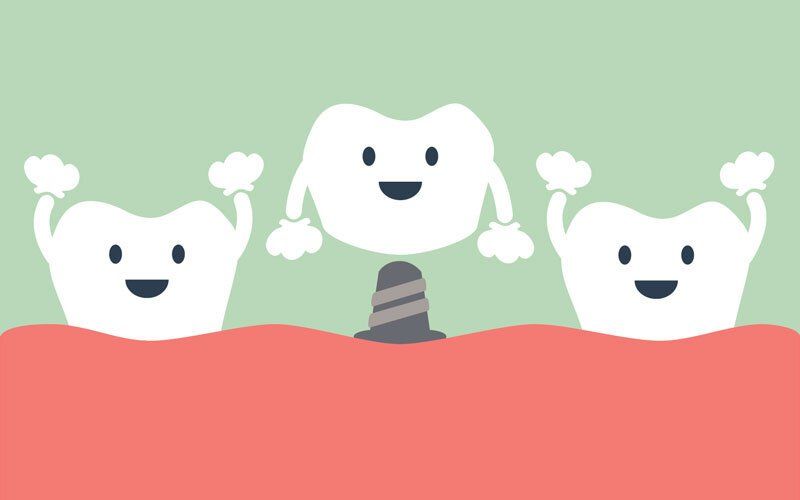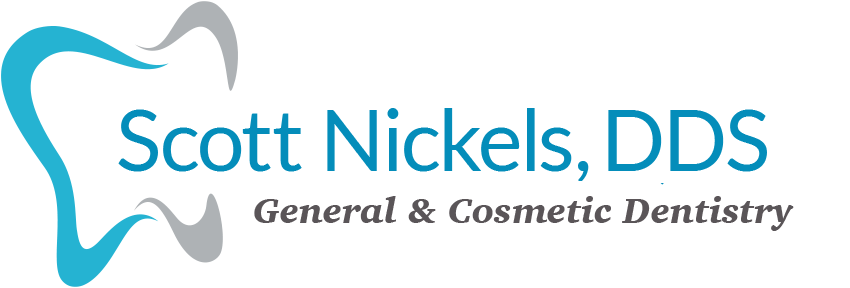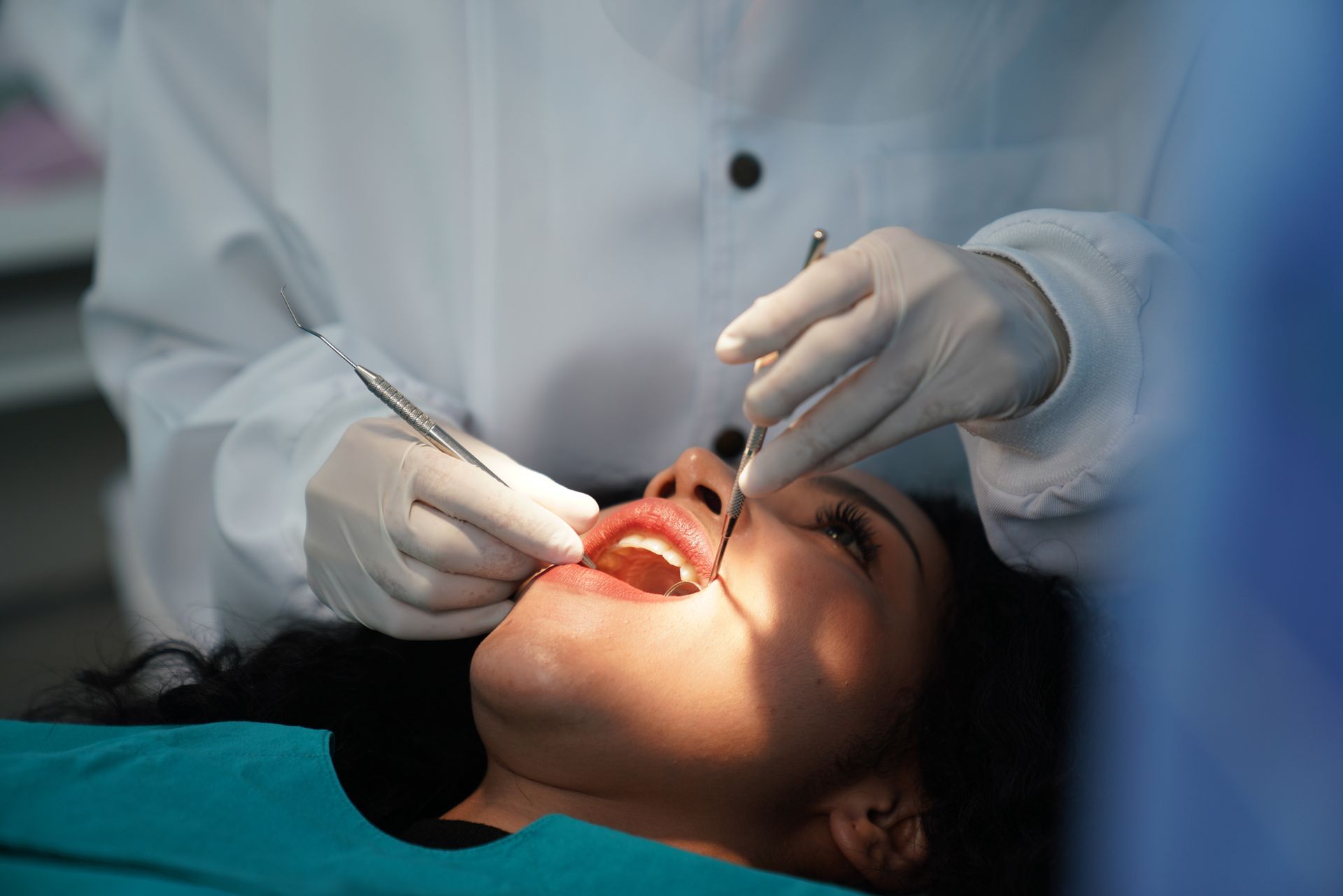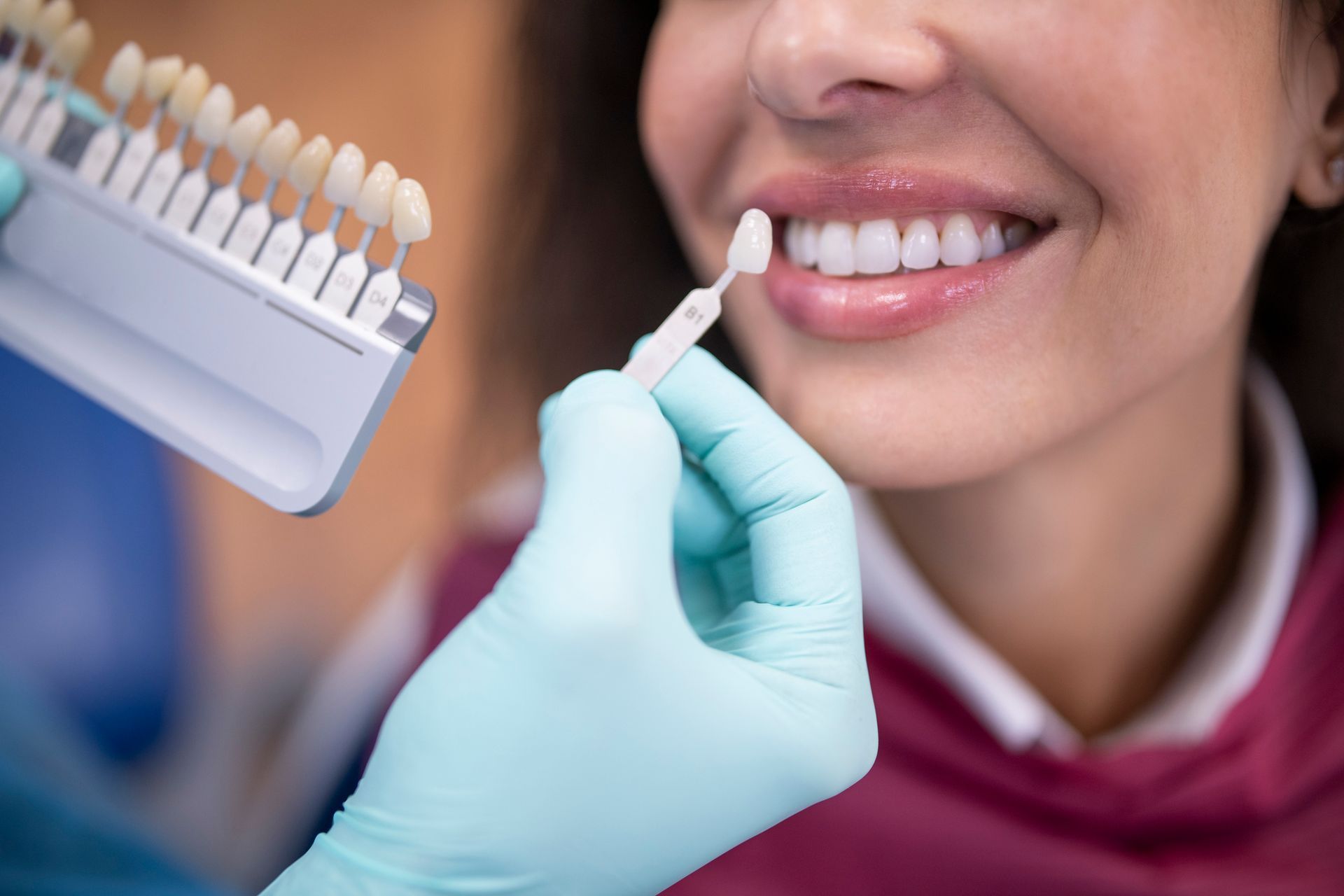Dental Implants

1.) Dental Implants – March 2, 2020
Dental implants are fairly new and conservative procedures to replace one or several missing teeth. The conservative nature of implants is in comparison to dental bridges for replacing teeth. Although bridges or dentures might be the best approach for some patients in replacing teeth, good candidates for implants can appreciate and take full advantage of this innovative procedure. In order to replace teeth with a bridge, the adjacent teeth are used for retention.
With implants your adjacent teeth stay intact and your jawbone acts as the retentive feature for the replacement tooth or teeth. The dental implant is a titanium post that is surgically anchored into the jawbone. An artificial tooth or teeth is then cemented over the implant, as illustrated by the diagram below. The abutment holds the crown to the implant. The implant acts as the root for the artificial tooth or teeth. A single tooth or several teeth are mounted over the implant and feel like natural teeth.
Implants can also be used to support a denture which is called an overdenture. Implants, usually a minimum of two, are placed into the jawbone and a metal bar connects the two. The overdenture then clips onto this bar. The overdenture is removable. Implants to support an overdenture are planned for cases where original bone coverage is insufficient for conventional dentures. To receive implants, patients need to have healthy gums and adequate bone to support the anchorage of the implants.
Not only do you need these supportive structures for implants, but you must maintain these structures. Good oral hygiene is essential and critical for maintaining the longevity of implants. Also, regular dental visits will increase the success rate of your dental implants. The healing process for placement of implants is in the range of six to nine months. Every patient varies with healing.
The key to success is regular check-ups at the dental office and good at-home care. Your dentist will identify if healing is within normal limits and provide instructions for maintenance.













